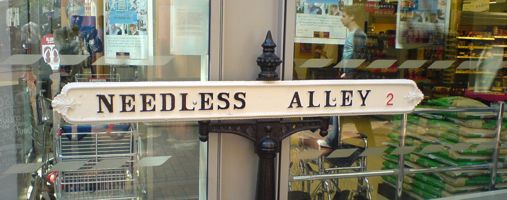
|
|||||||||||||
|
Night Falls on Bill Clinton Street
I am sitting in Belgrade as I’m writing this. The posters for May elections have turned the city into a pornographic exhibition: the smiling faces of politicians who haven’t done anything good for their people—what is so funny? The worst of them belong to the party of Mr. Vojislav Kostunica, still the prime minister, and they say: Kosovo is Serbia.
Consider this:
Kosovo Serbs are in the worst position: the Serbian politicians want them to stay as a reminder that Kosovo once was Serbian, and their Albanian neighbours want them out because they don’t want to be reminded. Yesterday, the Serbian minister of finance Mirko Cvetkovic has admitted that they are being paid from Belgrade, a number of them receiving over 2,000 euros a month—an average salary in Serbia proper is around 350 euros. And it’s getting worse: Cvetkovic has discovered that some of them have already moved to Belgrade, and are appearing in Kosovo only once a week, so they could claim their salaries. The countries that have succumbed to the pressure of the four godfathers of Kosovo (USA, France, Germany and the UK) to recognize the new state keep repeating the mantra that this case can not set any precedent—yet they are planning on using the precedent of Korea in trying to smuggle Kosovo into the UN past the angry Russians. Kosovo government is promising safety and security to all minorities—Serbs especially—but such promises come from the same politicians who were unable or unwilling to prevent mobs attacking Serbs in 2004, leaving 8 dead, several hundred wounded, 150 churches burned or damaged and over 4000 victims expelled. They also claim they will take care of the Serbian Orthodox churches and monasteries—something Serbs are very concerned about—but the first version of the site Visit Kosovo, put up by the Ministry of Trade a few weeks ago and taken down temporarily after an international outcry, had promoted these same monuments as examples of “Albanian-Byzantine” architecture. Unless the “Albanian” part refers to a church that was burned, I have no clue what they are talking about. Can something still be done to at least partially fix this mess? I am not optimistic when it comes to mutual understanding between Serbs and Albanians. These peoples do not speak the same language, neither metaphorically nor actually, and so the same models of reconciliation that have worked between Serbs and Croatians, or others in ex-Yugoslavia, will not function here. In fact, I believe that—with a hard work from both sides—maybe in a hundred years from now Serbs and Albanians might be able to communicate with their hands where everyone could see them. Counting on Serbian benevolence in solving disputes with Albanians is simply not realistic. Leaning on Albanian goodwill in protecting the lives and property of the few remaining Serbs is ludicrous. Therefore, we must adhere to the principles of realpolitik and come up with clean solutions, which would leave the options for cooperation open, but must not be debatable. Both sides have to be hurt in this process if we want a lasting peace in Balkans, because such is the definition of compromise.
Serbia and Kosovo have entrapped themselves into a rhetorical blind alley. Serbian politicians all sing in the same choir, repeating that Kosovo is Serbia, and that is one dangerous tune—all or nothing in this case means nothing. Their Albanian colleagues are not much different, except that their happy song claims that independence means prosperity. If only 36 countries out of 192 members of the UN have recognized their state, it hardly means bright future—capital is allergic to limbo. In the recent interview with Die Welt, president Bush was asked if he believed Kosovo would be a “real state” in 20-30 years. He refused to discuss even such a broad timeline. The American foreign policy in the past fifty years has perfected creating Kleenex regimes and movements that would serve their purpose and then be discarded, but such product recall is extremely expensive in terms of human suffering. If history makes you nauseous, Iraq and Afghanistan are close at hand: Sadam and Taliban were American products. Kosovo has to work. Serbia has to go ahead. The separation of Kosovo is the only realistic option we have left. An appeased Serbia, paradoxically, is the best chance that Kosovo has. (Originally published in Saturday’s GLOBE AND MAIL,
April 4, 2008, |
|||||||||||||

